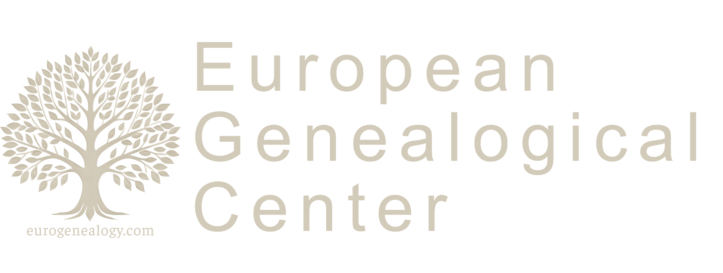Genealogical research in Malta: tracing ancestors & exploring family history
Discover your ancestry dating back to the 15th century
Archival search and family tree research in Malta
Genealogical research in Malta offers a unique window into the complex and layered history of this island nation at the crossroads of Europe and the Mediterranean. Despite its small size, Malta possesses a remarkably rich documentary tradition shaped by centuries of foreign rule, maritime trade, and strong religious identity. Its strategic location between Southern Europe and North Africa brought the island under the control of the Normans, Aragonese, Knights Hospitaller, French, and British, each of whom contributed to Malta’s administrative and archival systems. The Roman Catholic Church has long played a central role in recordkeeping, and today Malta preserves one of the most continuous and detailed genealogical archives in the Mediterranean. At the European Genealogical Center, we assist clients in tracing Maltese ancestry through parish records, noble family registries, legal documents, notarial acts, and immigration records — bringing to life the stories of families who lived, migrated, married, and thrived in these islands from the 15th century to the present day.
While confirming Maltese descent for citizenship or legal purposes is a goal for some clients, many seek to reconnect with a family past that spans centuries of cultural interaction and Mediterranean identity. Our research is carried out in Malta’s central archives, diocesan repositories, parish collections, and notarial registries, which hold a wide range of ecclesiastical and civil documentation. We retrieve baptismal, marriage, and burial records, wills and dowry contracts, censuses, and family petitions, many of which were written in Latin, Italian, or Maltese depending on the time period. Our team also consults archival material from foreign powers that historically governed Malta, including Spanish royal documents, Napoleonic civil records, and British colonial registers, as well as immigration and emigration records. Family history books are carefully compiled and may include transcribed documents, genealogical charts, family narratives, and detailed commentary, offering a comprehensive understanding of the family’s story across generations and historical contexts.
Sources of genealogical research in Malta
The primary sources for Maltese genealogy are parish registers, many of which date from the early 1500s. These records — primarily baptismal, matrimonial, and burial entries — are vital to reconstructing family lines and often include extensive marginal notes that reveal occupations, witnesses, social standing, or affiliations with religious confraternities. Civil registration was introduced under British rule in the 19th century, offering additional documentation of births, marriages, and deaths. In parallel, notarial archives provide legal instruments such as wills, dowries, land transactions, and court testimonies, which offer insight into family property, economic activity, and legal disputes. Given the island’s dense population and long-standing urban settlements, many genealogical links can be traced through multiple branches, sometimes connecting to broader Mediterranean networks involving Sicily, Naples, Spain, North Africa, and other parts of Europe, further enhancing the rich cultural tapestry of Maltese ancestry, which also intersects with various Mediterranean, African, and European genealogies, providing invaluable insight into the interconnectedness of regional histories and migration patterns across centuries.


In addition to core genealogical sources, we examine a range of supporting records that shed light on daily life in historic Malta. These include ecclesiastical visitations, inquisitorial reports, census-like household surveys (Status Animarum), military service lists, apprenticeship contracts, and educational registers from ecclesiastical colleges and religious orders. For noble or notable families, we consult published genealogical compilations and manuscripts that trace lineage through centuries, often linking Maltese houses to continental European nobility. Special attention is given to maritime and mercantile records, which document family activity across the Mediterranean. Furthermore, local property and land ownership records offer additional insight into the economic status of families, while court documents and notarial acts help to clarify legal and social standings. These varied sources together form a detailed and rich portrait of both prominent and ordinary Maltese families, significantly enriching and broadening the genealogical research process.
Neighboring countries where we conduct research
Examples of our research
Below you can review examples of research reports received by our customers:
Prices for genealogical services in Malta
You can find a detailed price list and description of all services of European Genealogical Center here
Prices for genealogical services in Malta
Genealogical research
From €1500
Tracing family history back to the 17th century
Biographical search
From €800 to €2000
Establishing the life story of an individual and their close relatives
Nationality confirmation
From €500 to €1500
Identifying details about a person’s ethnic origin
Document search
From €200 to €1200
Obtaining certificates, parish registers, and civil registry records
Family history book
From €2500
Creating a unique publication describing the genus history
Family history website
From €2000
Development of a personal website dedicated to your family’s history
Submit a request, and we will contact you shortly
You can also reach us directly by sending an email to: european.genealogical.center@gmail.com or writing to us in Telegram

european.genealogical.center@gmail.com
© 2026
All rights reserved
All rights reserved
Contact us:

